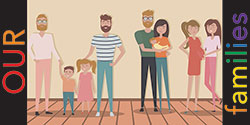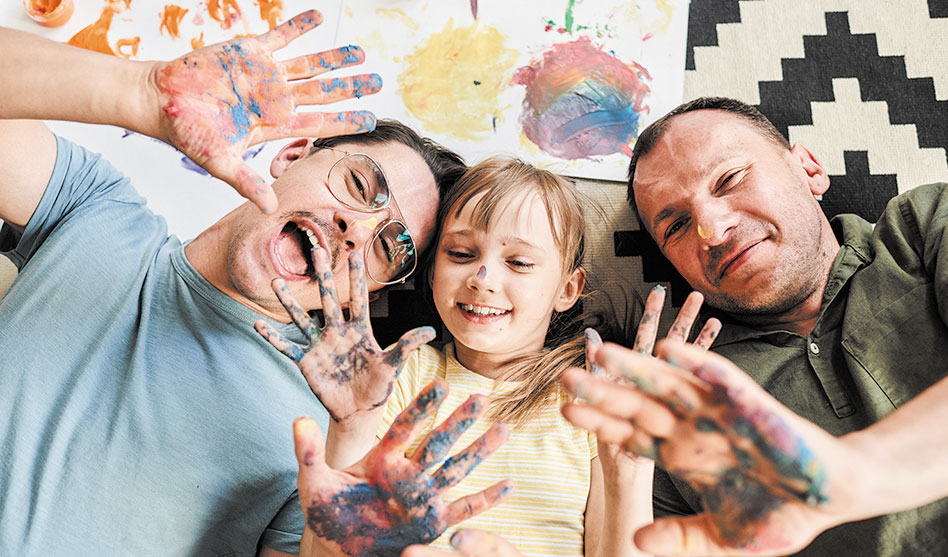While the wording differs, the advice is the same: be loving and understanding
DAVID TAFFET | Senior Staff Writer
taffet@dallasvoice.com
 As more and more youth come out at ever-younger ages, it’s never been more important for families to offer love and support to their LGBTQ kids — even if they don’t understand it.
As more and more youth come out at ever-younger ages, it’s never been more important for families to offer love and support to their LGBTQ kids — even if they don’t understand it.
The Child Mind Institute says that when a child is coming out, “the most important thing for them to know is that their family supports and loves them.”
If a parent is having trouble accepting that their child is gay, lesbian or transgender, speaking to a support group like PFLAG can help.
“Fear of rejection and serious negative reactions kept many LGB adults from openly sharing their lives,” writes Caitlin Ryan, director of the Family Acceptance Project at San Francisco State University.
Ryan writes that on average, adolescents understand their sexual orientation around age 13. But children begin to express their gender identity by age 3.
Support begins with the parents, and supportive parents should require respect for their LGBTQ child from other family members.
Sometimes LGBTQ children reach out to the their siblings first, and supportive siblings can help pave the way for parental support.
One way families can be supportive is by reaching out to PFLAG. That organization offers parents a number of quick tips on how to support their LGBTQ children.
Lead with love is PFLAG’s first idea. For many parents that’s a natural response.
“For others, long-held beliefs may get in the way of being able to respond positively and supportively,” PFLAG writes without being judgmental.
Their advice to those parents is to remember that as easy or difficult as it was to learn about the child’s sexual orientation or gender identity, it was equally difficult for the child to come to the parent with the news.
What should a parent say to a child who has revealed such deeply personal information? PFLAG suggests a simple, “I love you.”
Or if a parent is at a loss for words, a hug always works.
Next piece of advice from PFLAG: Listen with intention.
“Give your child ample opportunity to open up and share their thoughts and feelings,” they advise. And if the loved one who just shared the news seems to want to talk but isn’t opening up, a simple question like “How did things go in school today?” might start a conversation.
Most parents don’t react by planning to march in the next Pride parade with their kids. Some do, but it’s enough to show subtle support. That will make a difference, according to PFLAG.
What might that subtle support look like? Parents can speak positively about an LGBTQ person they know or a character from a book, movie or TV show. Reflect on a gender or sexuality issue in the news. Read a book about gender or sexuality diversity.
These are small hints, PFLAG explains, but they let kids know the parent is supportive while learning more.
Finally, PFLAG advises parents to learn the terms: “What is sexual orientation?” the organization asks. “What does it mean to be bisexual?”
Learning the language, PFLAG explains, is a great way to start having some important and challenging conversations.
And mistakes? Parents will make them. Making mistakes is what everyone does.
Years ago, I was asked to speak at a PFLAG Dallas meeting. After I addressed the group, they broke up into discussion groups and I joined one of them. One mom was a little distraught: Her son had just come out to her, and she had responded all wrong.
“He came out on Thursday and by Monday you’re at a PFLAG meeting?” I asked her. She nodded about to break into tears.
“Here’s my number,” I told her. “If he has any criticism, have him call me, and I’ll tell him to back off. Just being here so you can be more supportive is one of the most loving things I ever heard.”













